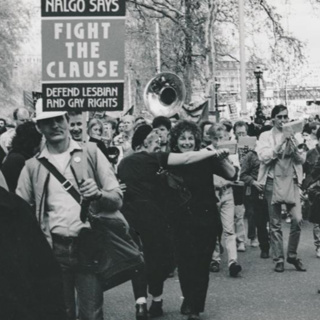
82. Benefits of Empire in India
We’re back with Britain’s great imperial project in India, going great guns (often literally) despite the war in Europe. It was still in principle being run by England’s old East India company, though increasingly that was little more than a fiction behind which the British state exercised direct rule. There were more glorious wars against rebellious local leaders, where ‘rebellious’ meant ‘more inclined to exercise power themselves than have it exercised from London’. Governor General Cornwallis, who’d had such a bad time in America at the hands of other rebels, scored some successes in India, as did his successor Lord Mornington, aka Richard Wellesley. The younger brother of Mornington, far better known later by his own alias of Duke of Wellington, got some invaluable military experience out there, and explored some interesting new tactics, such as the use of terror against local villagers. On a more positive note, we also get to meet a British judge in India, a remarkable linguist, William Jones. He deeply respected local culture, learning Sanskrit and providing the first translations of some Hindu sacred texts into English. Above all, he was struck (as some others before him) by the similarities of languages from South Asia with most European languages, so today he’s generally seen as the father of international linguistics and of the study of the Indo-European language group. Illustration: Sir William Jones, by James Heath, after Sir Joshua Reynolds Stipple engraving, published 1799. National Portrait Gallery, D36735. Music: Bach Partita #2c by J Bu licensed under an Attribution-NonCommercial-No Derivatives (aka Music Sharing) 3.0 International License
20 Maalis 202215min

81. Austria out, Russia out, Pitt out, Nelson blind
Things just got worse and worse for the Austrians after the Battle of Marengo, until they were defeated again by the French, and much closer to home, at Hohenlinden in Bavaria. They made peace with France, as did Russia, leaving Britain as the only major power still in the Second Coalition, which was now all but dead. Britain did win a couple more victories, notably in Malta and then, with the Turks, over the isolated remnants of the French Army of Egypt. Most spectacularly, it won the great naval Battle of Copenhagen, where Nelson won undying fame for his laconic comment “I see no signal”, though the truth was slightly less creditable to him, and a lot more creditable to his commander than the legend allows. News of that victory would have been balm to William Pitt the Younger’s soul. But, oddly, he was no longer Prime Minister to receive it. After seventeen years, he’d gone two weeks earlier. Illustration: The British fleet off Kronborg Castle, Elsinore, 28 March 1801 [before the Battle of Copenhagen], by Nicholas Pocock, 1810. © National Maritime Museum, Greenwich, London. Music: Bach Partita #2c by J Bu licensed under an Attribution-NonCommercial-No Derivatives (aka Music Sharing) 3.0 International License
13 Maalis 202214min

80. Lucky and unlucky admirals and generals
A tale of good and bad luck among high-ranking military men. That’s the fortunate Admiral Nelson and his far less fortunate victim, the Neapolitan Admiral Caracciolo. And Napoleon as a general enjoying the good fortune of being saved by the far less fortunate Desaix. Plus the difficulties of building the Second Coalition, especially for a British diplomat who had to wade through to icy water to try to put it in place. Only for his bit to fail, followed by the whole thing rapidly beginning to unwind. Illustration: Death of General Louis Desaix by Jean Baptiste Regnault. This file has been identified as being free of known restrictions under copyright law, including all related and neighboring rights. Music: Bach Partita #2c by J Bu licensed under an Attribution-NonCommercial-No Derivatives (aka Music Sharing) 3.0 International License
6 Maalis 202214min

79. Duels of men and duels of nations
It’s a time for duels. The one between the nations you already know about, and we’re simply following its next stages. But the one between two men is more than a little strange, especially as one of them was the British Prime Minister. Also in this episode, we see Nelson hitting the big time with a major victory of his own. And Napoleon reaching for the big time, as he sets out to win supreme political power, to add to his lustre as a general. Illustration: Thomas Luny, ‘Battle Of The Nile August 1st 1798 At 10pm’ (the explosion of L’Orient). This work is in the public domain in its country of origin and other countries and areas where the copyright term is the author’s life plus 100 years or fewer. Music: Bach Partita #2c by J Bu licensed under an Attribution-NonCommercial-No Derivatives (aka Music Sharing) 3.0 International License
27 Helmi 202214min

78. Strange year, strange conflicts
We’re wrapping up on the curious year of 1797, when Britain saw success at sea against its external enemies, but also a terrible threat from within its own Royal Navy, in the mutinies at Spithead and the Nore. It saw economic problems and the struggle to keep funding the war, both resolved by more touches of William Pitt’s financial genius. It also saw Pitt negotiating for peace with France, failing, and having to reconcile himself to war. And, at a personal level, it saw Pitt having to deal with his marital prospects, ultimately dashed, quite possibly because of his sexual orientation. Illustration: ‘The nuptial-bower; - with the evil-one, peeping at the charms of Eden' (Eleanor Eden; William Pitt; Charles James Fox) by James Gillray, 13 February 1797 NPG D12597 Music: Bach Partita #2c by J Bu licensed under an Attribution-NonCommercial-No Derivatives (aka Music Sharing) 3.0 International License
20 Helmi 202214min

77. Weird times
Strange times for Britain. And for William Pitt the Younger. While at the beginning of his time as Prime Minister, he’d had to contend with being in a parliamentary minority, losing votes right and left, he’d enjoyed extraordinary economic success. Now, though, with a powerful majority, he faced economic hardship and the unrest to which it led. Partly that was due to bad harvests as well as the impact of war. The turbulence was met with repression. Nowhere was that worse that in Ireland, where Britain put it down ferociously, though without addressing the fundamental problems, which would only lie in wait to preoccupy Pitt again later. As for the war, Britain, with its allies dropping out one after the other, was doing badly on land. But it was doing superbly at sea, as each of its three main rivals, France, Spain and Holland went down to spectacular defeat. And yet it was in the Royal Navy itself, that he came closest to facing his own defeat, as it too was caught up in the unrest sweeping the country. Illustration: ‘The Delegates in Council, or Beggars on Horseback’. George Cruikshank. A contemporary cartoon of the delegation of sailors who devised the terms of settlement of the Mutiny of Spithead, 1797. This work is in the public domain in its country of origin and other countries and areas where the copyright term is the author’s life plus 100 years or fewer. Music: Bach Partita #2c by J Bu licensed under an Attribution-NonCommercial-No Derivatives (aka Music Sharing) 3.0 International License
13 Helmi 202214min

76. France: a hard nut to crack
Having dealt with all the background, in revolutions both French and Industrial, in this episode we move into the War of the First Coalition, Act I of the long series of Revolutionary and Napoleonic Wars that ended at the Battle of Waterloo in 1815. In passing, in this episode, we deal with the height of the Reign of Terror in France, culminating in the execution of its main architect, Robespierre. To give credit where it’s due, we also talk about how he pulled off one trick which at the time was beyond the anti-slavery lobby in Britain: he banned slavery in all French territories. Finally, we take a look at the early stages of the irresistible rise of a Corsican artillery officer soon to be known as Napoleon Bonaparte. Illustration: Capture of the Dutch Fleet by French cavalry at Den Helder on 23 January 1795, by Léon Morel-Fatio. This work is in the public domain in its country of origin and other countries and areas where the copyright term is the author’s life plus 100 years or fewer. Music: Bach Partita #2c by J Bu licensed under an Attribution-NonCommercial-No Derivatives (aka Music Sharing) 3.0 International License
6 Helmi 202214min

75. Same old enemies
During the long sequence of wars that engulfed Europe between 1792 and 1815, there was one constant: whoever else might shift allegiance, Britain and France were always against each other. Britain was the wealthiest nation in Europe. France was the first to build a mass army. Those were ingredients for an entirely new kind of war. This episode looks at how Britain became so wealthy, France so powerful military. And, along the way, it explodes a few Industrial revolution myths about the Protestant ethic, the effect of climate and British genius. Illustration: Schematic of a Newcomen atmospheric engine, fired by coal and driven by steam. It was used above all to pump water out of mines. Invented in 1712 by Thomas Newcomen, it was the first practical device designed to use steam power to produce mechanical work. Copyright 123rf royalty free images Music: Bach Partita #2c by J Bu licensed under an Attribution-NonCommercial-No Derivatives (aka Music Sharing) 3.0 International License
30 Tammi 202214min






















